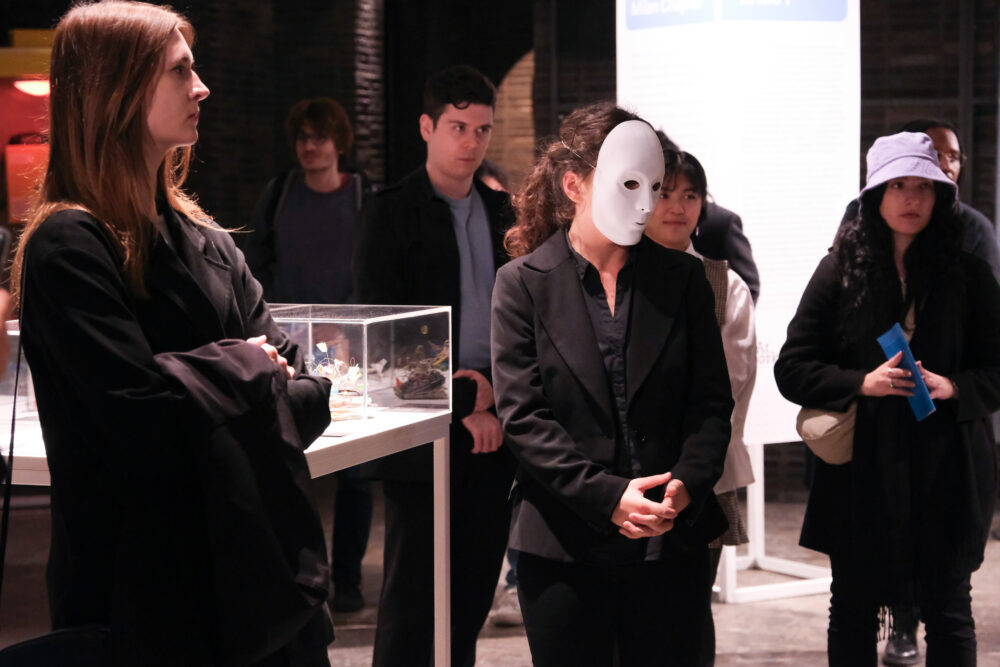Who's the stranger in me ?
Conductor:Simon Njami
Shiza Naveed, editorial statement, from the AtWork Catalog.
AtWork Milan Chapter 24 has been implemented by the Moleskine Foundation in partnership with BASE. It was the second chapter of the ‘Who is the stranger in me?’ 2023 tour.
The Fon and the Bakongo cultures share the same type of divinity: Nana Buluku for the first and Mahungu for the second. For the Bakongo, Mahungu was a two headed creature who was split in two parts and gave birth to a male (Lumba) and a female (Muzita). For the Fon, Nana Buluku created the male and the female from its androgynous nature. This stranger in me should not be confused with somebody coming from outside, like the Jewish dibbouk (a demon that haunts its victim’s spirit) or Sosia, Plautus’ character (the slave with many faces). Instead, it is another part of me. That part that activates actions or reflections that I don’t totally master and that, at times, can surprise me, as if I had been daydreaming or had been a victim of a somnambulism period. Neither it is the German doppelgänger, even if that mythological character opens up to a reflection about the duality of human beings. In the African vaudou or certain Latin American ceremonies, the trances allow people to reach another part of their personality and to bring out hidden information that they had no consciousness of. It’s a shout that frees this intangible part of their psyche. It is perhaps the same kind of metaphorical shout developed in Albert Camus novel “La chute”, the story of Jean-Baptiste Clamence (from the latin clamens, which means shouting out, in reference to John the Baptist who preached in the desert) who, at a certain period of his life, becomes his own judge. Until the revealing moment where he did not try to save a drowning young woman who will die, the high idea he had of himself seems to him as a huge lie and he starts his own trial. The question behind this short novel, written as a monologue, addresses the « ego » that we think we are and which might be a social construct rather than an assumed reality. Who are we when we say I am? A fiction or a reality? That is the question we are invited to address and that might allow us to follow Socrate’s invitation inscribed on the frontispiece of Delphi’s temple: Know thyself.
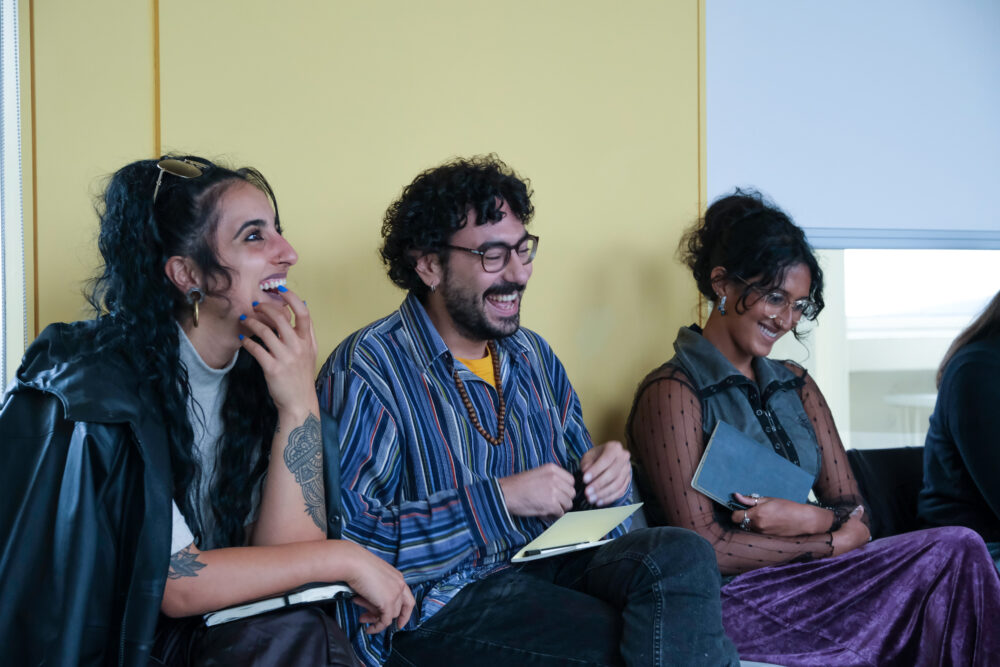
The workshop took place in Milan, Italy from October 17th to 21th 2023, and was conducted by Simon Njami at BASE. The group was composed of 19 creative leaders, who were partially invited to the workshop as part of Creative Pioneers network and partially recruited through the open call. The group was incredibly diverse as the participants came from 13 different countries as their backgrounds which covered Ethiopia, Iran, Vietnam, Sudan, Ukraine, Belorussia, Italy, Nigeria, Pakistan, Senegal, Peru, Switzerland. The question “Who is the stranger in me?” became ever more pertinent, as the participants explored their deeper identities and shared their experiences from these different and often complex contexts, confronting themselves and “the other” on this challenging and revealing journey. The results of these personal and collective reflections were creatively spilled on a notebook, which each participant personalized as a creative output of the workshop and their answer to the question posed.
Shiza Navid, editorial statement, from the AtWork Catalog.
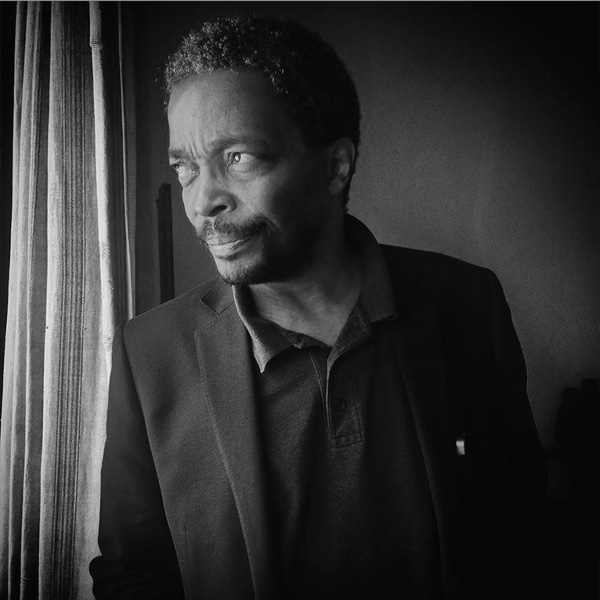 The Leader
The LeaderSimon Njami is a Paris-based independent curator, lecturer, writer and art critic. Njami was the co-founder and editor-in-chief of “Revue Noire” a journal of contemporary African and extra-occidental art. He has served as artistic director of the Bamako photography biennale for ten years. He co-curated the first African pavilion at the 52nd Venice Biennale in 2007 and curated the first African Art Fair, held in Johannesburg in 2008. He has served for ten years (2000/2010) as cultural advisor for the AFAA, the cultural branch of the French Ministry of Foreign Affairs (today Institut Français) in their cultural cooperation policy. He was a member of numerous art and photography juries (10 years at WordPress). Njami has curated numerous exhibitions of contemporary art and photography, including Africa Remix (2004-2007) and The Divine Comedy (Frankfurt, Savanna, Washington DC, 2014/15) African Metropolis (MAXXI, Rome, 2018) and two Editions of the Dak’Art Biennale (2016/2018). He was a member of the scientific boards of numerous museums and a Visiting Professor at UCSD (University of San Diego California). He has directed the Pan African master classes in photography (2008/2019), a project that he conceived with the Goethe Institut and he is the advisor of AtWork educational format that he co-created with Moleskine Foundation in 2012 and continues to conduct it until the present moment. He is also currently setting up the permanent collection of contemporary art for the Memorial Acte museum in Guadeloupe.
Njami has published seven books, including essays and novels.
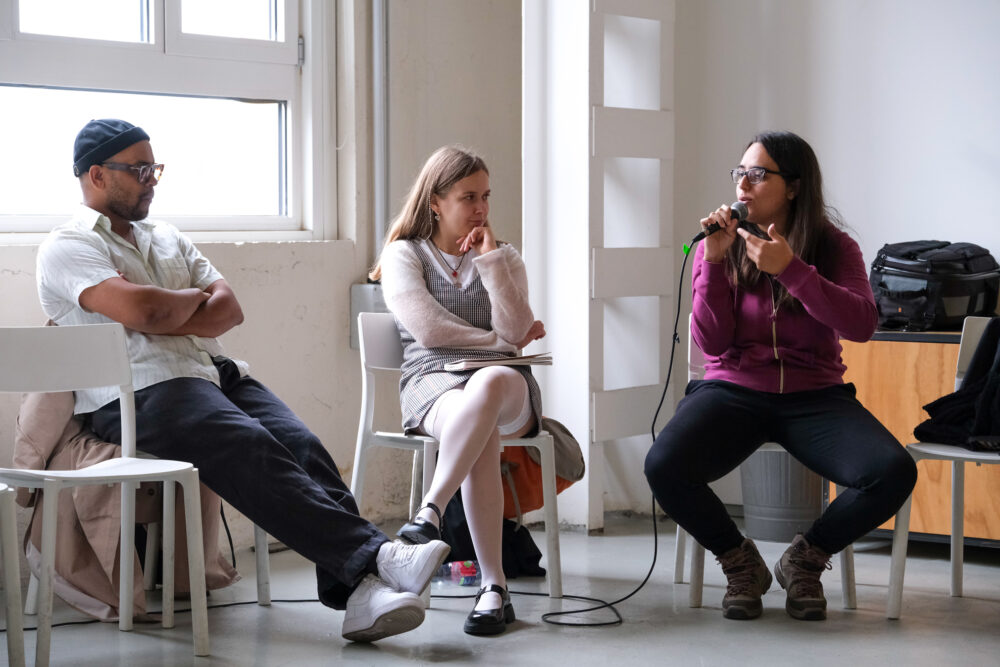
Regardless of the heterogeneity of the group, the atmosphere of the workshop was immediately open and intimate. As the participants went through a series of questions and exercises, expertly guided by Simon Njami, they kept uncovering the strangers in themselves and in their companions. Some participants made a trip to Milan especially to participate in this experience (a 2 day bus ride from the Ukraine war zone, a train from London, a trip from Nigeria), hence this created a safe space with no judgements or prejudices, where everyone was a free thinking individual and not a product of their country’s regimes or ideologies. This group of 19 strangers became a family without borders, dismantling the notion of a “stranger” in a conventional sense. The workshop experience has equipped them with a toolbox on how to be a more conscious leader, which they will take to their respective organizations and communities to continue their relevant impact work.
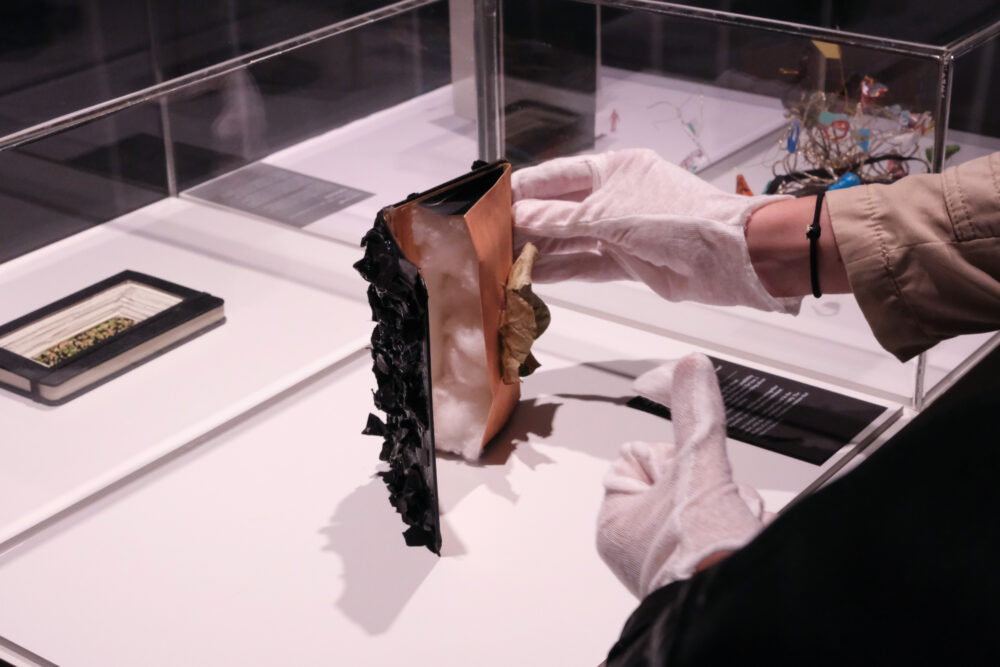
Fabio Orioli, curatorial statement from AtWork Milan catalogue.
The creative outputs of the workshop were exhibited on October 23d at BASE and were showcased there until October 30th. Under the supervision of Simon Njami, the participants co-curated an exhibition and created a high-quality catalog in 24 hours that features 19 interpretations of the theme. The vernissage at BASE was a perfect occasion for the AtWorkers to celebrate the strangers they discovered in themselves. This was accentuated by the AtWorker of the previous AtWork Milan experience, Brixhilda Shqalsi , who staged an improvised interactive masked performance, provoking the audiences to be aware of themselves through the gaze of the “stranger” mimicking their gestures.
